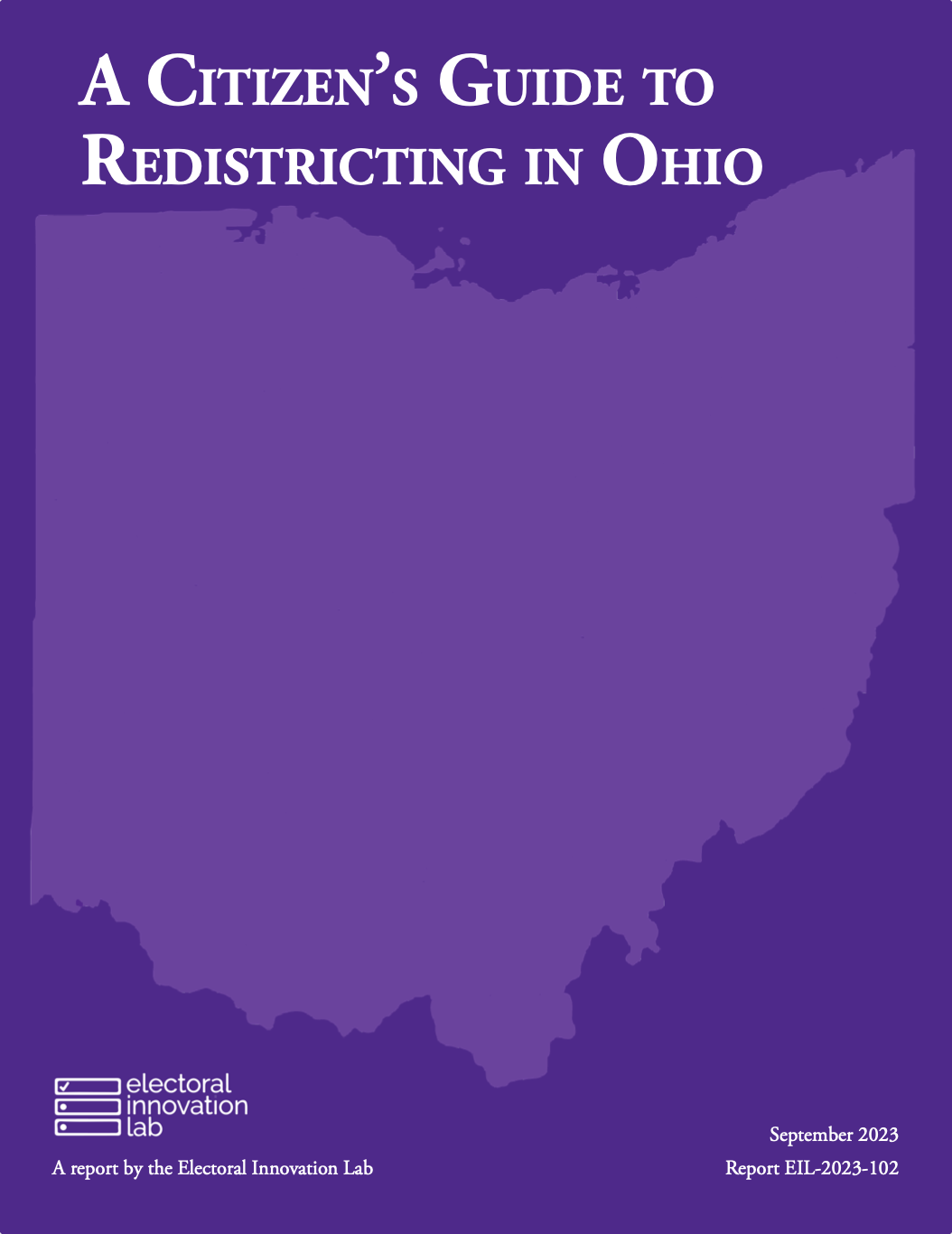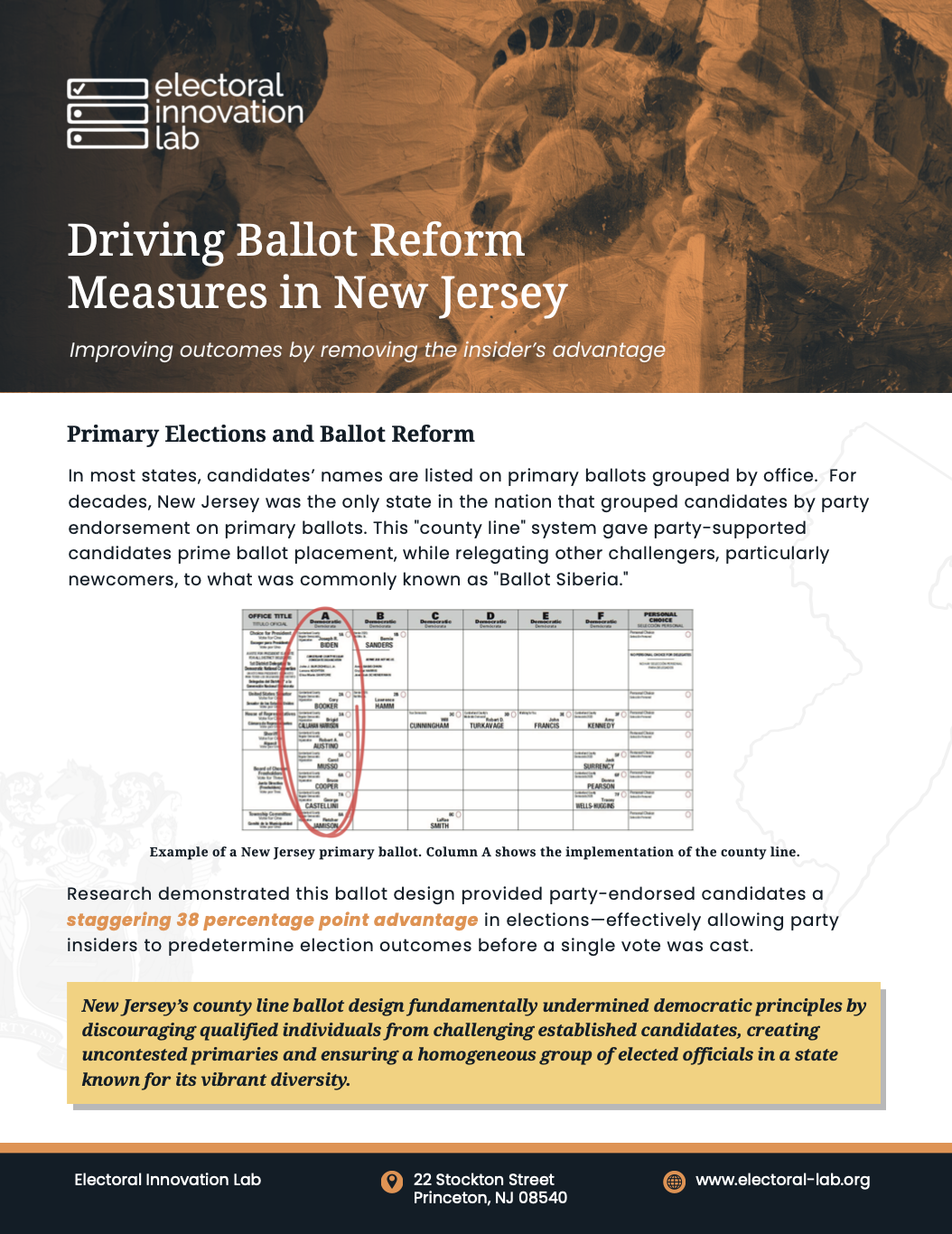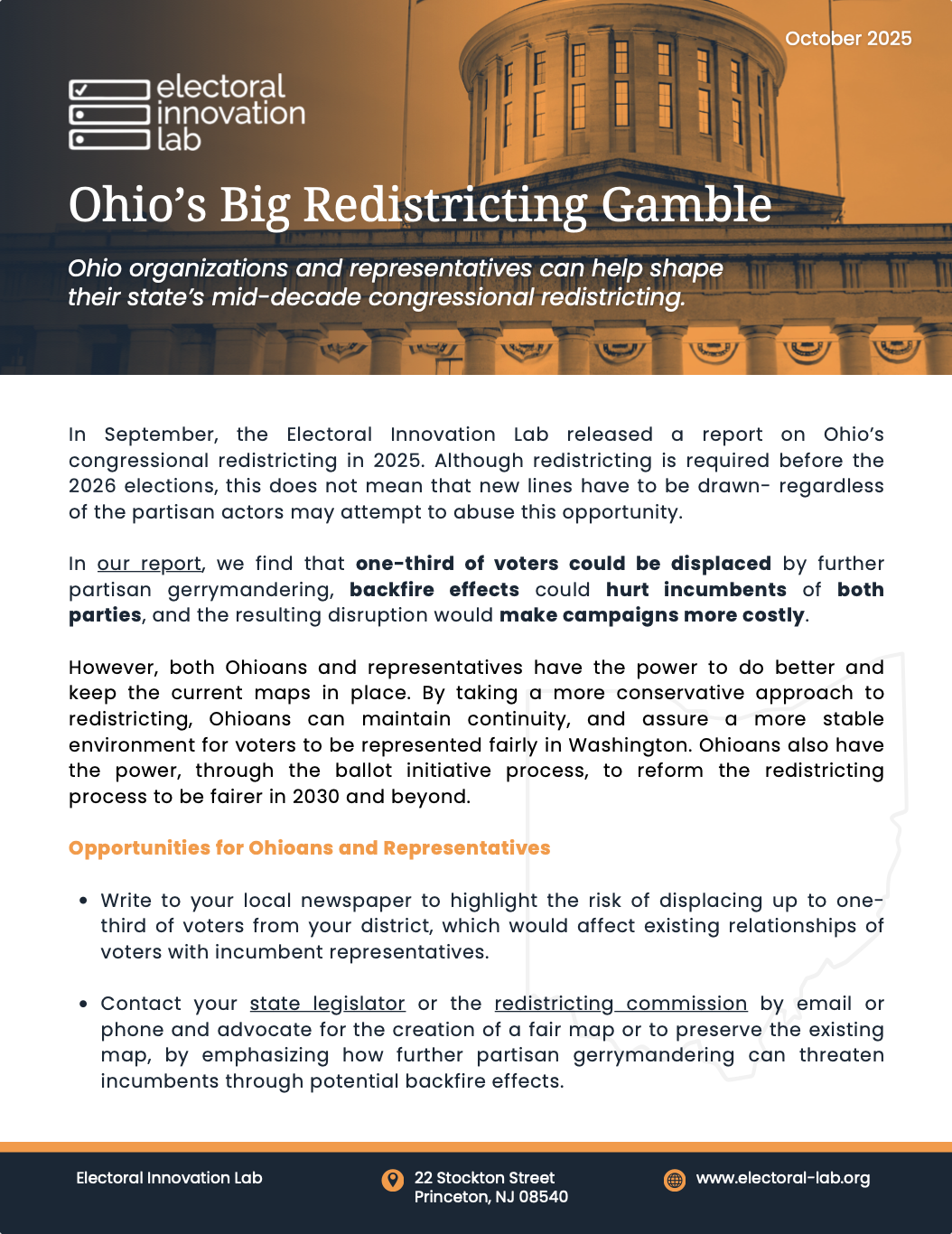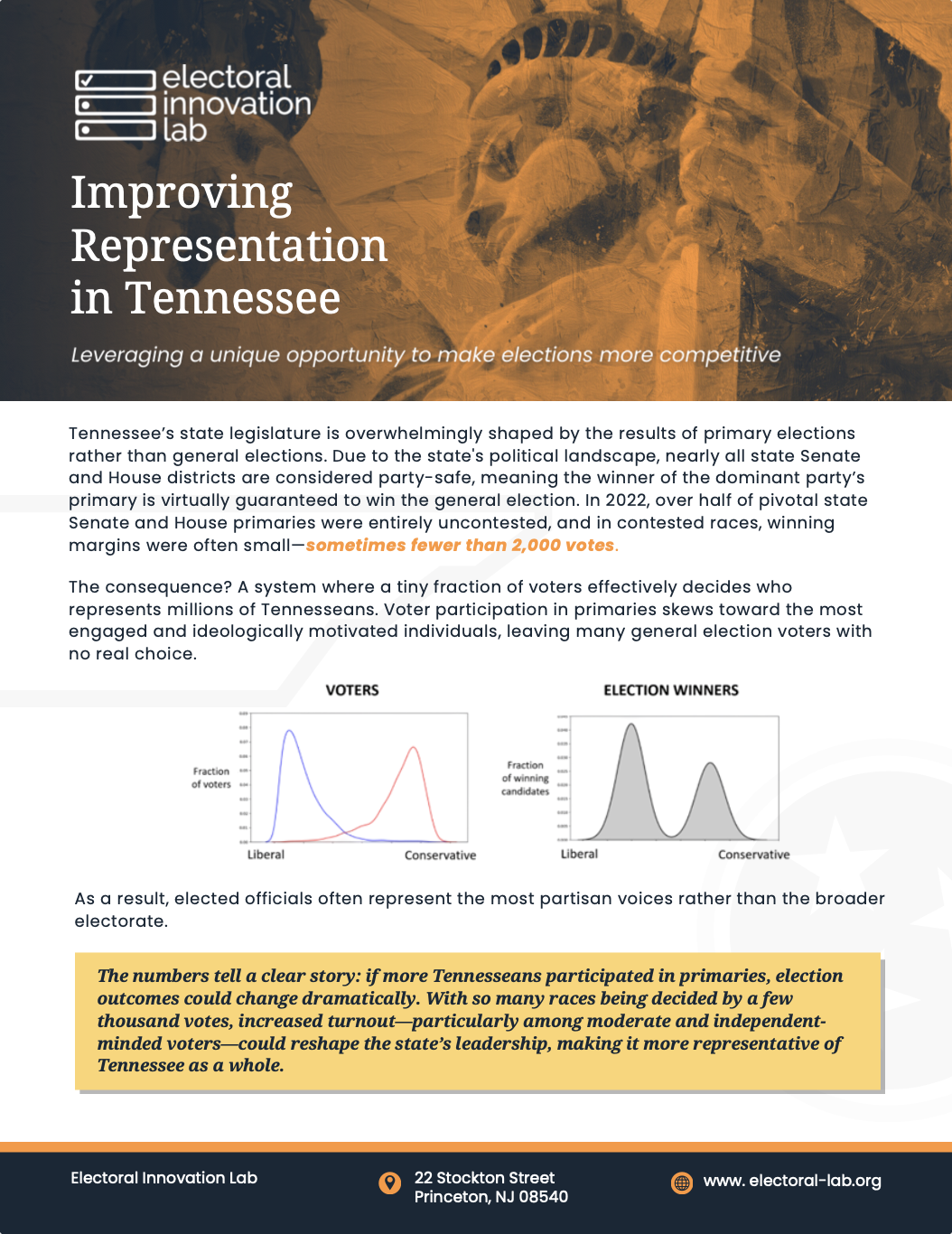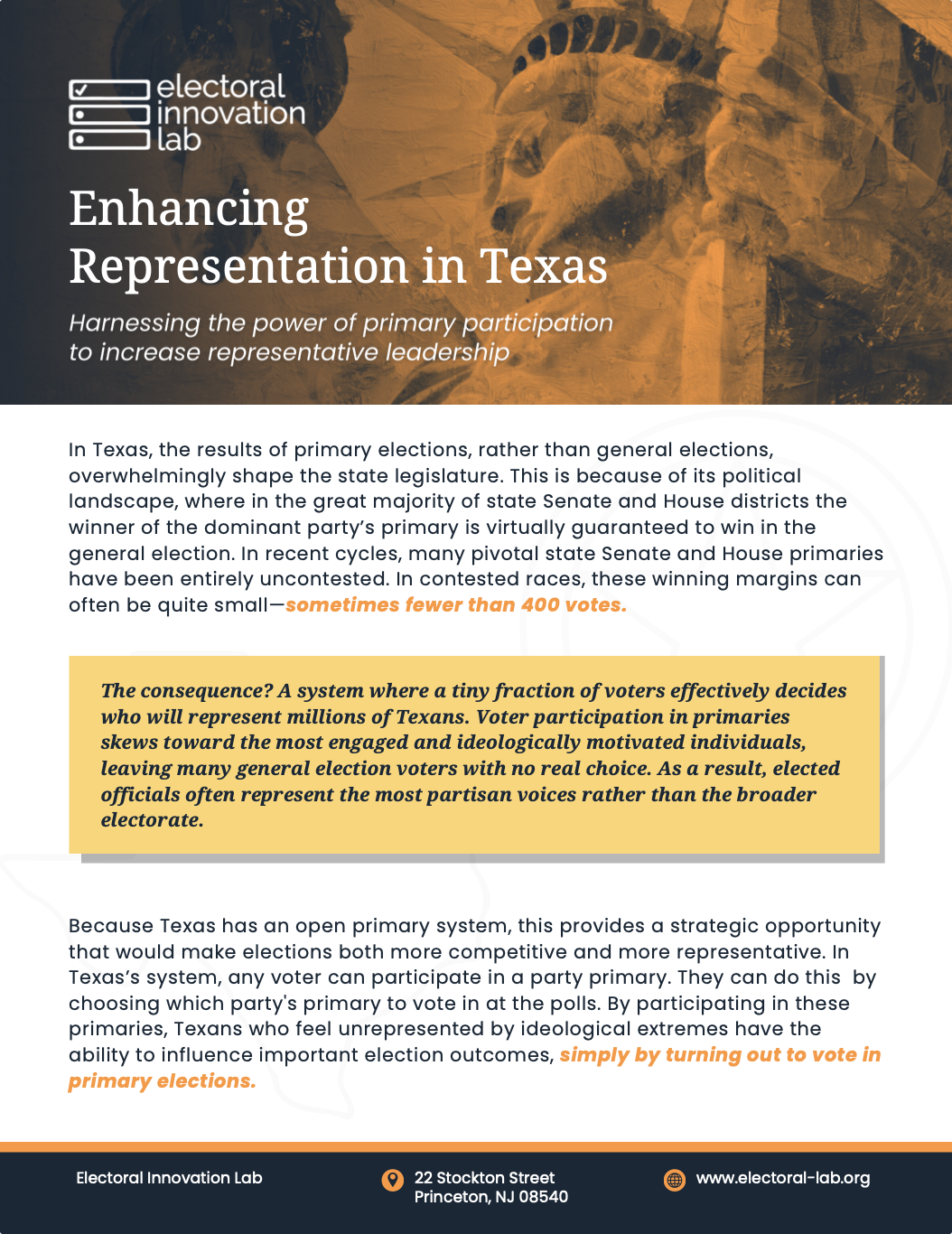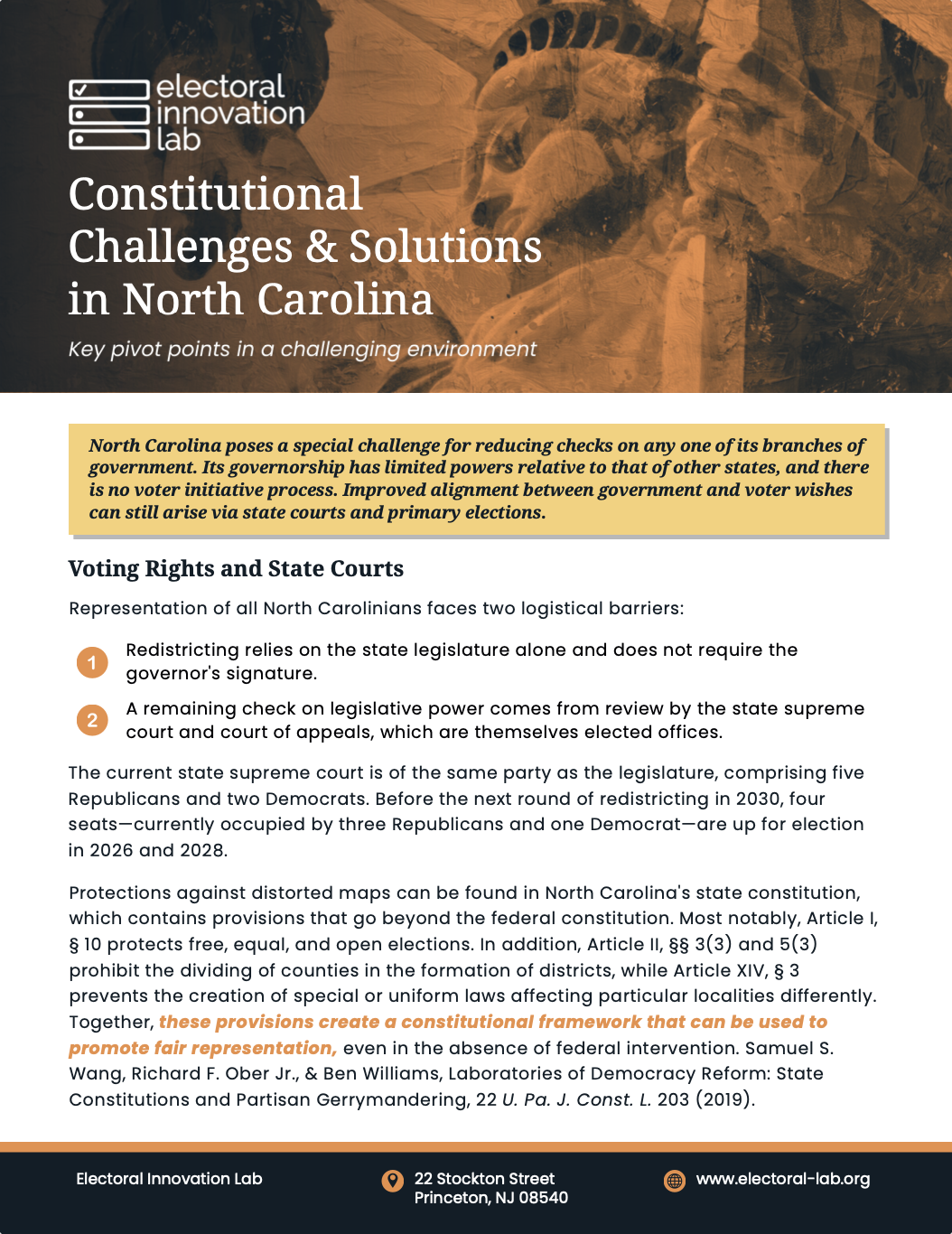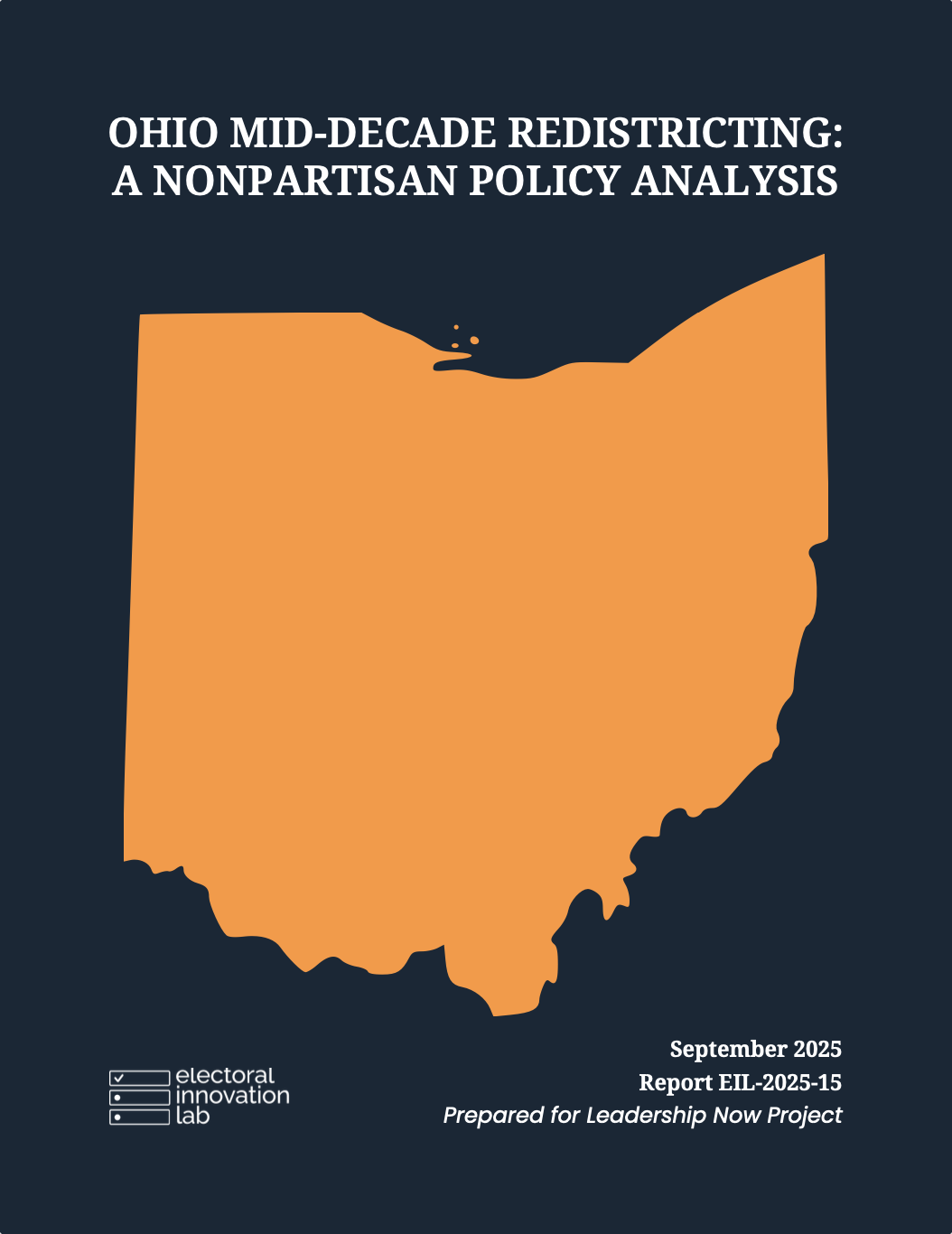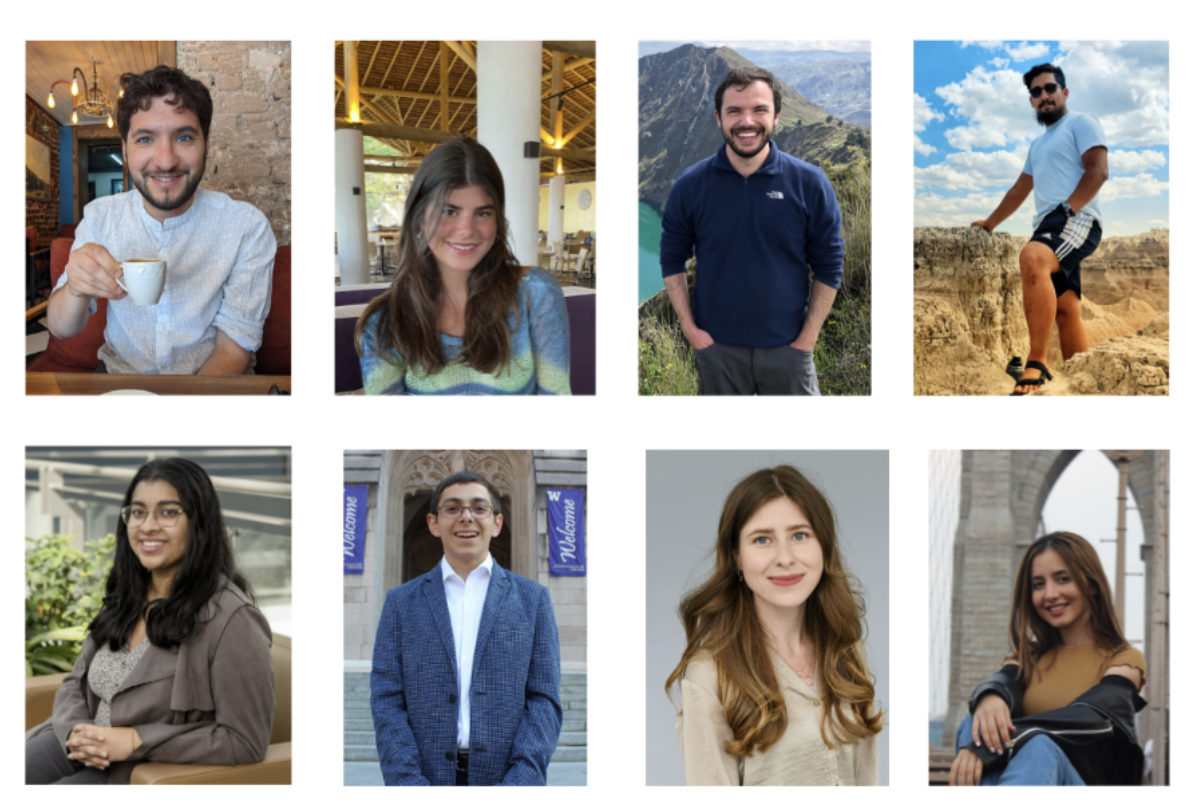Our Work
Using math and law to create practical strategies for change, we envision an American democracy where voters gain and maintain the power to choose their government to achieve fair and meaningful representation for all. Our approach allows us to translate mathematical principles, science, and law into practical changes to make democracy more representative, responsive, and accessible to all citizens.
Projects
Vote Maximizer brings attention to critical races nationwide. Using rigorous mathematical analysis, this project is designed to maximize a single person’s political leverage.
Representable.org allows users to report their own communities of interest. This university student-initiated project included dozens of states and was referenced by special masters in Virginia and New York to draw new district maps.
Allied Projects
Redistricting Report Card promotes public comprehension and news coverage of the redistricting process. We simultaneously developed a network of statewide and national partnerships to quickly communicate updated analysis and respond to needs in near real-time.
State-Level Special Reports
A Citizens’s Guide to Redistricting in Ohio (2023)
Driving Ballot Reform Measures in New Jersey
Ohio’s Big Redistricting Gamble (2025)
Improving Representation in Tennessee
Enhancing Representation in Texas (2025)
Constitutional Challenges and Solutions in North Carolina
Ohio Mid-decade Redistricting: A Nonpartisan Policy Analysis (2025)
Academic Publications & Legal Briefs
The Good, the Bad, and the Ugly: Redistricting Commissions in the 2021 Cycle. Duke Journal of Constitutional Law & Public Policy (2025)
Three Tests for Bias Arising From the Design of Primary Election Ballots in New Jersey. Seton Hall Journal of Legislation and Public Policy (2023)
Amicus brief in Republican Party of New Mexico et al., v. Maggie Toulouse Oliver, et al (2023)
Turning communities of interest into a rigorous standard for fair districting. Stanford Journal of Civil Rights and Civil Liberties. (2022)
A systems framework for remedying dysfunction in U.S. democracy. Proceedings of the National Academy of Sciences USA. (2021)
The nonlinear feedback dynamics of asymmetric political polarization. Proceedings of the National Academy of Sciences USA (2021)
Laboratories of Democracy Reform: State Constitutions and Partisan Gerrymandering. Penn Carey Journal of Constitutional Law (2019)
All pain, whose gain? A fifty-state analysis of the independent state legislature doctrine for redistricting. University of New Hampshire Law Review (2023)
Why Donald Trump should be a fervent advocate of using rank-choice voting in 2024. Political Science and Politics (2022)
The nonlinear effects of political advertising. Journal of Political Marketing (2021)
Up by their bootstraps: will a new Supreme Court let legislatures bypass governors over redistricting? Albany Law Review (2021)
Amicus curiae brief in Lew Hagopian et al v. Dunlap et al. (2020) - cited in decision
The best laid plans: unintended consequences of the American Presidential selection system. Harvard Law and Policy Review (2020)
Legal, political science and economics approaches to measuring malapportionment: the U.S. House, the Senate, and the Electoral College 1790-2010. Social Science Quarterly (2020)
Laboratories of Democracy Reform: State Constitutions and Partisan Gerrymandering. Penn Carey Journal of Constitutional Law (2019)
Three tests for practical evaluation of partisan gerrymandering. Stanford Law Review (2016)
Programs
Our Interns, Fellows, and Mentors (IFM) program convenes exceptional scholars, practitioners, and civic leaders to collaborate on democracy's critical challenges. Our interns and fellows bring expertise across data science, law, mathematics, and social sciences to develop innovative approaches to electoral reform. Through structured mentorship and collaborative projects, interns and fellows translate research into real-world applications while building a network of experts equipped to implement systemic change in communities nationwide.
The Lab's Policy Research program is the intellectual engine driving evidence-based democracy reform. Through rigorous analysis and mathematical modeling, our researchers identify practical remedies to voting system failures, then translate them into solutions—such as independent redistricting commissions, open primaries, and ranked-choice voting—that are optimized for both state and local political contexts and for available reform pathways: legislative action, ballot initiatives, or litigation.
Civic Technology transforms complex research into accessible digital tools that empower communities to strengthen democratic systems. Our user-friendly applications map community interests, visualize electoral data, and model alternative voting systems. By putting powerful analytical capabilities directly into the hands of advocates, lawmakers, and citizens, we bridge the gap between academic research and practical implementation, accelerating the adoption of evidence-based democracy reforms across the country.






